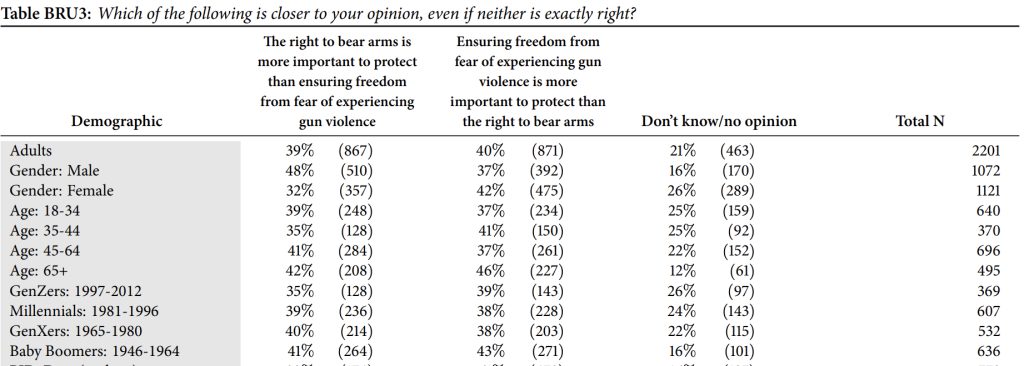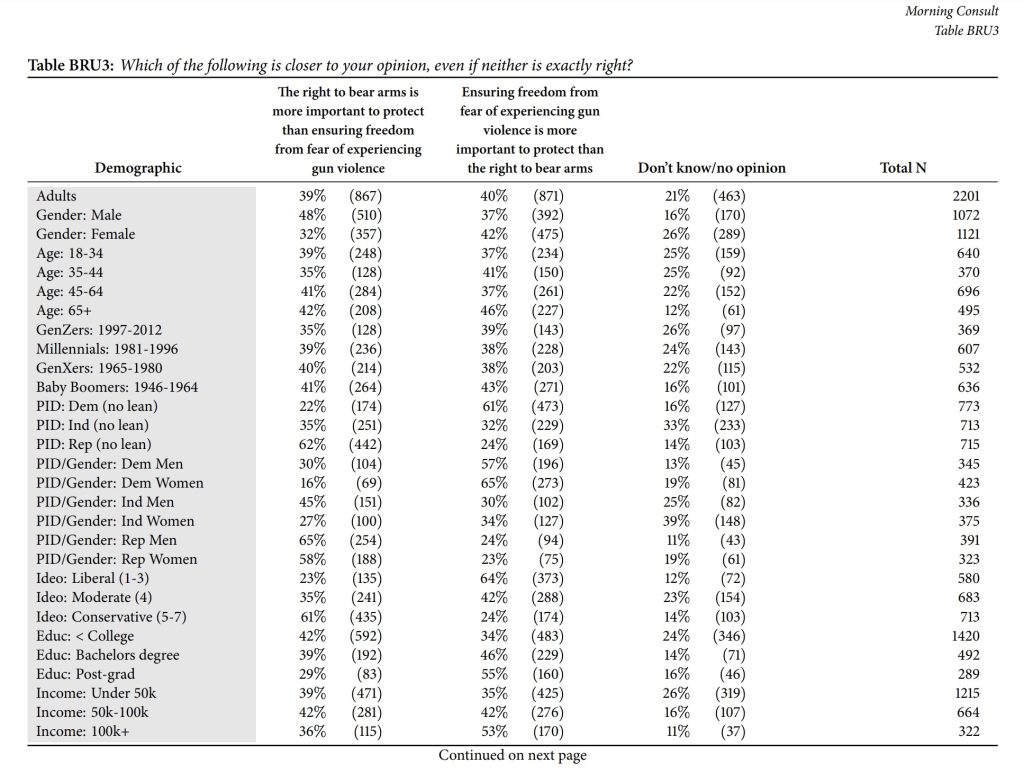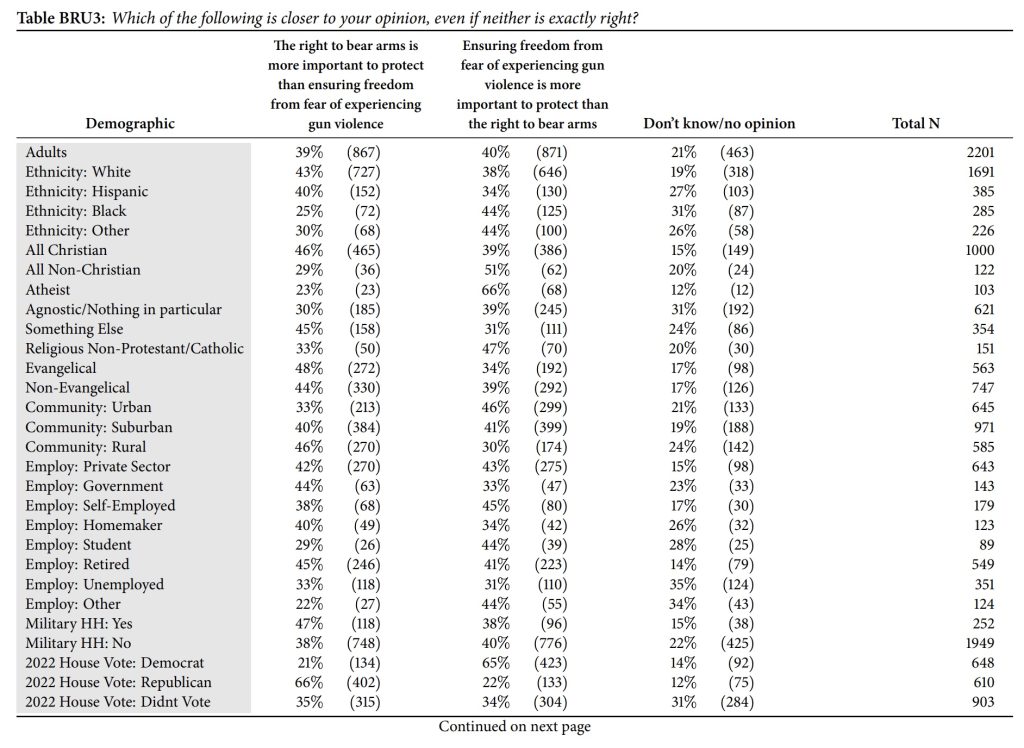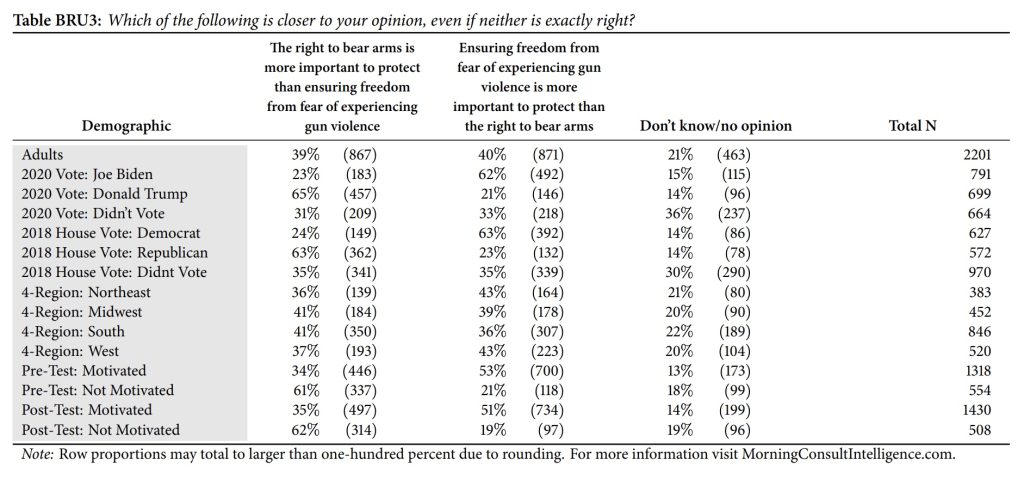
It’s been said that figures don’t lie, but liars figure. The problem for liars is, simply making up numbers doesn’t really fly these days. There are too many sources of information out there and people increasingly crowdsource the fact-checking. That’s why the media and other “authority figures” have never been more doubted by such a large portion of the population. Their obvious lies and distortions (Joe Biden’s never been sharper!) have been exposed too many times now.
While anyone can pay for a push poll to produce the kinds of results they want to further their narrative, all it takes is a couple of other, more objective polls to expose the lie. So if people want to put their finger on the scale and turn out fake polling results to generate fake “news,” they have to resort to more sophisticated methods.
There are several ways of skewing polling results. A big one is sampling. Who you talk to when polling matters, as non-random samples introduce bias. Getting a truly random and representative sample is harder than ever now, though, as the difficulty in getting responses from different cohorts varies widely.
If all you do is call landline phones, you’ll end up with a sample that’s much older than the average. If all you do is conduct internet polling or go by text message, you’ll get results that skews younger. In short, there are lots of ways to accidentally or intentionally get false or misleading results.
The time of contact is another big one. If you call and text and otherwise gather your data during the day when most people are working, you’ll get more unemployed and retired people. If you call in the evening, you’ll get a whole different set of responses. But, by far, the biggest way to influence polling results is in the wording of the questions. What you ask and how you ask it will make a big difference in the responses you’ll get. Here’s a quick example:
Do you support common-sense gun laws like requiring background checks and only allowing people over 21 to buy firearms?
Or…
Do you support allowing the government to collect information about all gun owners that could enable future firearm confiscation?
Obviously, the first one is going to get a lot more “Yes” responses, while the second one will get far more people to answer “No.” Both questions are talking about basically the same policy here…universal background checks. As anyone who’s ever worked in sales knows, however, it’s all about how you present things.
That’s why one recent poll is so interesting . . .
A new Marquette Law School poll finds that 69% of adults support the Supreme Court's Bruen decision, up from 64% in February and the highest level of support the poll has recorded: https://t.co/R15Jt4YLI0 pic.twitter.com/9WeSzT2284
— Firearms Policy Coalition (@gunpolicy) August 9, 2024
The gun control industry and their friends in the media love to claim that most Americans are strong supporters of “common sense gun safety” laws, what the rest of us know as stricter gun control. Limits on our Second Amendment rights.
But as the Marquette poll asking people about the Supreme Court’s Bruen decision referenced in the tweet above shows, when gun rights are presented as a “right to carry a handgun for self-defense outside the home,” the “common sense” majority that anti-gun groups love to talk about…evaporates.
Support for the Court’s Bruen ruling is overwhelming. Sixty-nine percent of respondents support letting people exercise that right, while only 31% oppose it. The “strongly favor” responses alone outnumber all the opposition by nine percent and they’re almost triple the “strongly oppose” crowd.
Yes, some of the positive responses assume that there’d be a license involved, but very few people are open to the idea of banning concealed carry altogether or making it difficult for the average person to obtain a handgun for self-defense. That obviously flies directly in the face of the arguments the “common sense gun safety” crowd makes about concealed and permitless carry.
Want more? Let’s look at the Morning Consult poll that the Brady gun control group commissioned. Among other questions, they gave people two options about gun rights in general . . .
The right to bear arms is more important to protect than ensuring freedom from fear of experiencing gun violence.
Ensuring freedom from fear of experiencing gun violence is more important to protect than the right to bear arms.
The responses are sliced and diced into almost every conceivable political, identity, age and employment category, but this snippet is some of the most interesting . . .

Even among the most “anti-gun” age group polled — Millenials) — nothing even close to a majority values “freedom from fear” over gun rights. Only 40% say “freedom from fear” trumps Second Amendment rights. That’s a lot and shows a slice of the ideological divide in this country, but it’s no majority. (If you’re interested in the full results of the question, see the bottom of this post.)
So the next time see an article or hear a gun control industry talking head claiming that polls show most Americans support strict anti-gun laws, be sure to check the wording. It’s probably deceptive. Or their just outright lying.





I don’t want to be the one that said ‘told ya so’, but….. can’t help it in this case.
Now do late term abortion. The vast majority of the country does not support that. Most people, including Democrats, are horrified by the thought of it. Notice Democrat messaging. They don’t even like to say the word abortion. There’s a reason for that. Instead, they only frame it as a civil rights fight. They frame everything as a civil rights fight. There’s a reason for that. That’s how they manipulate people. Yet, their actions show them to be anti-civil rights.